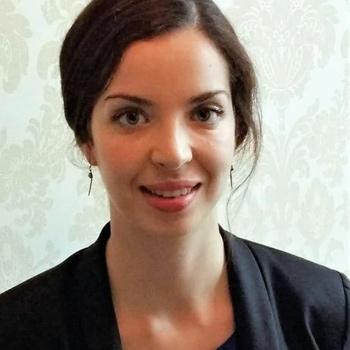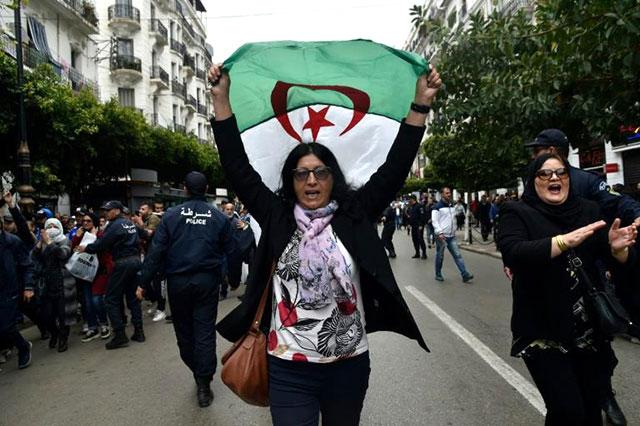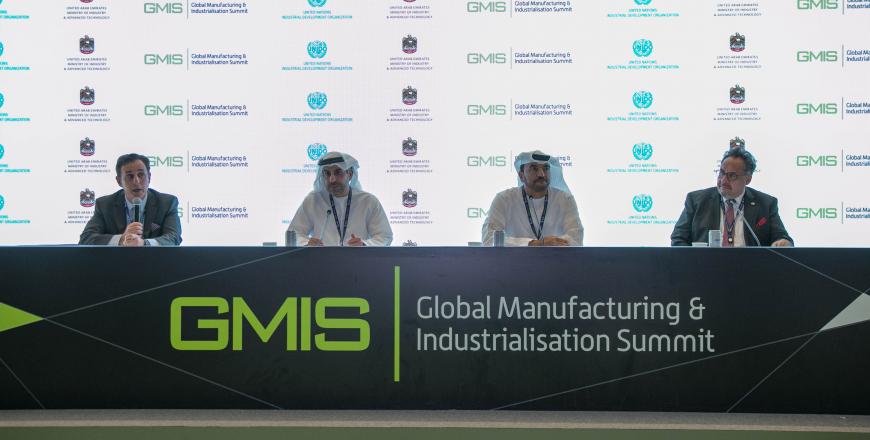You are here
A World Redrawn: Respect Earth, says Algerian biomedical researcher
By AFP - Jun 17,2020 - Last updated at Jun 17,2020

Asma Mechakra
ALGIERS — Algerian biomedical researcher Asma Mechakra is pleading for “respect” for all living beings and the Earth after the COVID-19 pandemic.
Mechakra, 34, a senior post-doctoral research fellow at the University of Lausanne, is an expert on cellular and molecular biology who also gained expertise in China.
She has fought against conspiracy theories about the pandemic that have flooded social media in Algeria and elsewhere.
Ecologically conscious and belonging to a young politically engaged generation, she has campaigned for Algeria’s anti-government “Hirak” protest movement.
AFP spoke to her about the impact of the pandemic and her views on the future.
How did the pandemic affect researchers?
“COVID had an impact on the provision of free knowledge. Researchers collaborated closely and posted their findings free of charge and quickly on the Internet.
This was very good because it showed that science can be disseminated in many ways.
But on the downside, most of the research was posted online in pre-publication form, which has not yet gone through peer reviews. This means that the quality of the research is not guaranteed and as a result could lead to disparities.”
Have science and technology taken over?
“I don’t think so. The mission of science is not to rule. Its vocation is to produce knowledge, answer questions and especially create new questions.
There is fear however, that technology could lead to total surveillance.
Repression prevails in some countries around the world, like what is happening in my country, but there is also hope that citizens will be become empowered.
So there are[signs of] hope, such as the Spanish leftist government’s plan to introduce a universal basic income to help people cope with economic hardship.”
What are the lessons learnt from the crisis?
“The main one is that it confronted humankind with its limits and boundaries.
The pandemic showed that mankind does not understand everything that surrounds it and that it is vulnerable in the face of nature, which it had thought it dominated.
Humans believe they have left their mark on geology and influenced ecosystems. But it takes just something small [like the virus] to make us confront our contradictions.
The crisis teaches us that pandemics in general are not simple exponential curves. They especially reflect political decisions. Countries have to rethink their health systems.
Instead of assuming responsibility for their failures in the face of COVID-19, some have shielded themselves behind conspiracy theories rather than reconsider their own neoliberal policies.”
What must change in a post-virus world?
“Mankind should stop thinking it is at the centre of the universe and realise that the world we live in is made up of ‘things and human beings’.
The modern way of life has focused on infinite growth. The global economy led to over-production, waste and consumerism and forced upon us structural changes such as climate change.
It has reduced the natural habitat of animals and led to a loss of biodiversity.
All this means that there are no longer boundaries between mankind and other living organisms and this can maybe create natural reservoirs in which infections grow.
Jacques Derrida [late Algerian-born French philosopher] suggested that ethics should be extended to all living things and Boaventura de Sousa Santos [Portuguese sociologist] went even further, proposing to include a charter of the Rights of the Earth in the charter of human rights.
In order to conceive a [better] world, maybe we must create a special kind of humankind that can do just that.”
Related Articles
TUNIS — The Algerian regime is exploiting coronavirus to defeat a protest movement that has shaken it to its core over the past year, analys
AMMAN – We find this to be a difficult time in the history of humanity.
DUBAI — The Global Manufacturing and Industrialisation Summit (GMIS) on Tuesday announced the intent to establish the Global Biomedical Indu


















